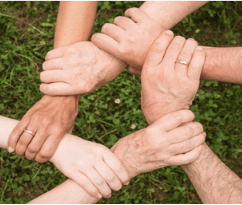How to Help a Loved One Who is Addicted to Drugs


It’s never easy when someone you love is addicted to drugs or alcohol, but it can be especially difficult when they refuse help. Around 10 percent of adults in the United States will have a drug use disorder at some point in their lives. 75 percent of the people who struggle with addiction don’t receive any form of treatment. While you can’t help someone who doesn’t want help, there are a variety of things you can to show your support and do what you can for someone who is going through an addiction. While it’s vital to avoid enabling, it’s possible to help a loved one in need. Below are some ways you can help.
Determine What they Are Using
When someone is addicted to a substance, they may take great lengths to hide it. You might know something is going on but not know what they are using. With prescription pills becoming cheaper and widely available, people can become addicted to all kinds of drugs and hide it pretty well. Alcoholism is more difficult to hide because you have to drink to get drunk and the effects of drunkenness are fairly obvious. Hard drugs are hidden because you don’t typically smoke meth or shoot up heroin in front of everyone. If you don’t know what your loved one is using, try to find out before you make any moves.
Express Your Worries
While you might find it difficult to take that first plunge, expressing how you feel about your loved one’s habits can make a difference. The person may or may not listen to you, but telling them that you are worried about their health and well-being can plant the seed in their mind. Showing your concern is the first thing you can do when you are worried about someone. Have a private conversation with the person and tell them how you feel. Then, based on their response, you will have a better idea how to move forward.
Involve their Family & Friends
If you have talked to the person directly and don’t have any luck, you should have conversations with the person’s friends and family. Are they a member of your family? Talk to the rest of the group and see what the others think. Is it a dear friend? Then you might want to talk to their family about the person’s drug or alcohol use.
However, you should tread softly when you have these conversations. A person in the throes of addiction could get angry at you for talking about them and giving away their secrets. It might be the best thing for them, but you still may push the person away. Still, when a person is going through a drug addiction it is necessary to get those who love the person involved.
Put Together an Intervention
When you have the person’s friends and family on board, it might be time for an intervention. An intervention is never easy, but if you get the right people together with the right message you can try to get through to the person. They might lash out, call people names, and refuse help, but they could also end their denial and accept that they need treatment to get better. You give them an ultimatum and discover what will happen next if they don’t enter treatment.
Help Them Enter Treatment
After the intervention, you will have a clearer path forward. Did they accept what you and the rest of the people who care about them had to say? If so, you can help them enter treatment. Help them learn more about medical detox and how it can help them get through the physical symptoms of detox.
Depending on the person’s addiction, you could look for an inpatient rehab facility or outpatient program. You can help them find the best drug rehab in Florida to receive the professional treatment that is necessary. When the person wants to get better and stop using drugs and alcohol, they will have taken the first step to recovery.
You might feel hopeless when it comes to your loved one who is addicted to drugs. Take solace in knowing that there are only a few things you can do like going to a detox and rehab facility. When a person refuses treatment, you won’t be able to help them. Everyone needs to find their own way and accept that they have a problem. If they haven’t done that yet, you won’t be able to do it for them. Still, when someone recognizes they need help—providing support is the best way forward.





